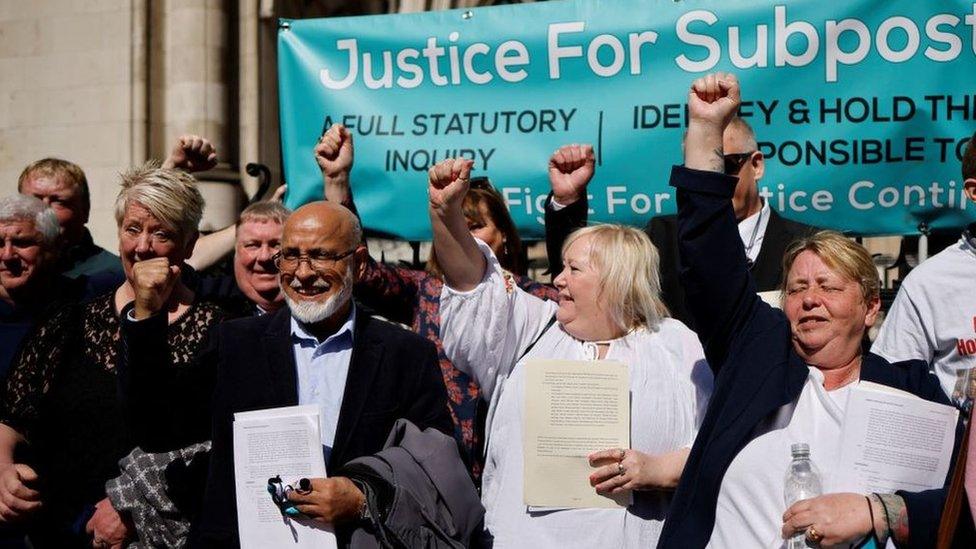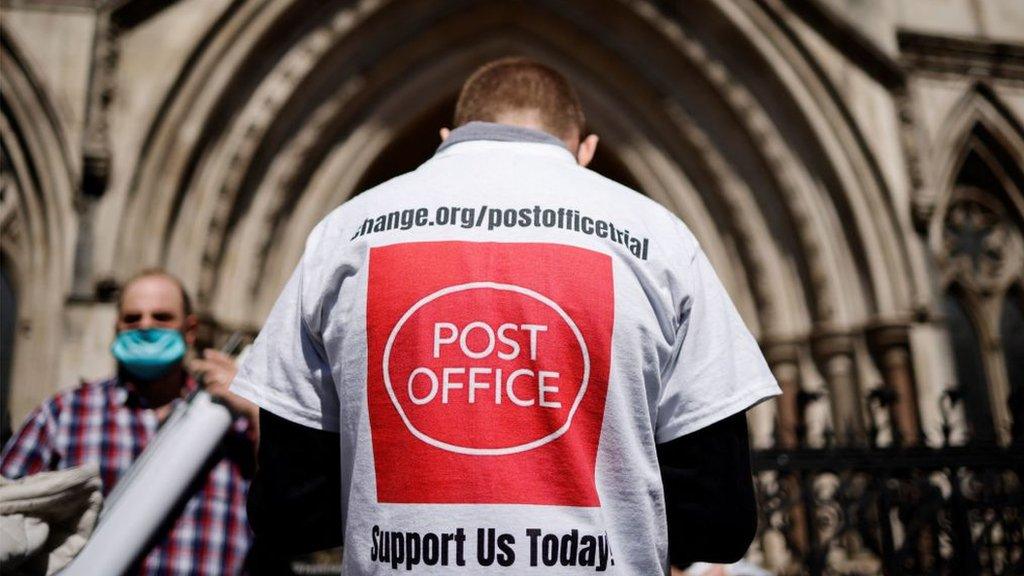Post Office inquiry hears from victims wrongly told to pay money
- Published
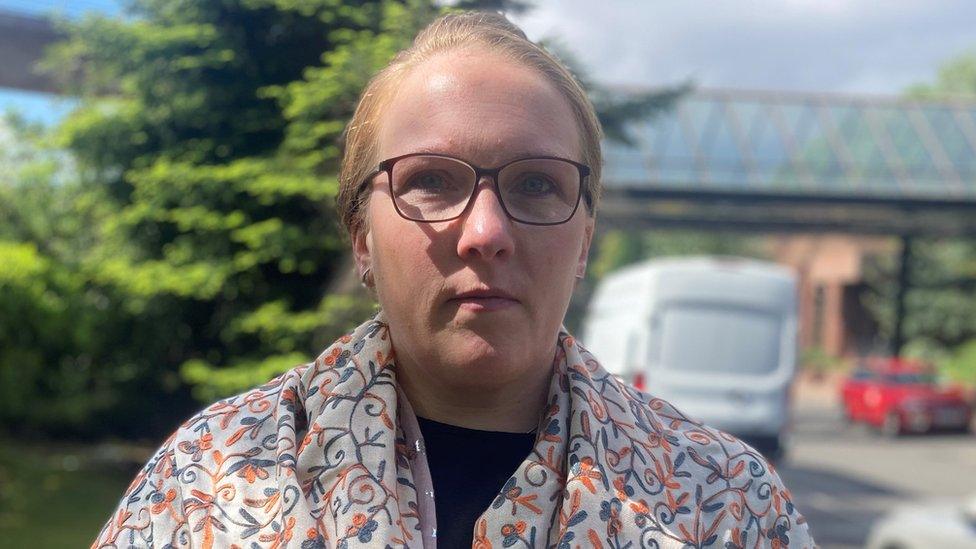
Louise Dar paid the Post Office £44,000 which was wrongly deemed to have gone missing from her business
Former sub-postmasters have told an inquiry they had to pay tens of thousands to the Post Office after being wrongly accused of fraud.
More than 700 sub-postmasters and mistresses in the UK were accused of theft and false accounting because of flaws in the organisation's IT system.
Some ended up in prison while others lost their jobs.
The scandal has been described as "the most widespread miscarriage of justice in UK history".
A public inquiry into the cases, which date back to between 2000 and 2014, opened in London earlier this year.
It is now hearing two days of evidence in Glasgow.
The Scottish Criminal Cases Review Commission - which looks into miscarriages of justice - has written to 73 potential victims in Scotland and is currently investigating eight cases.
Louise Dar told the inquiry she was forced to pay £44,000 which was wrongly deemed to have gone missing from her sub-post office in Lenzie, East Dunbartonshire.
Mrs Dar, 39, said she and her family regularly worked late into the night trying to clear up shortfalls which didn't actually exist.
She said: "It was out of control. Every day I was paying in £20, £40 or £100 to make up the shortfall.
"It was just money going into a black hole.
"Customers would come in the next day and say, is that you having problems again with the Post Office because I saw the light on last night.
"We thought, we'll sort it, we'll get there, but it was fighting a losing battle."
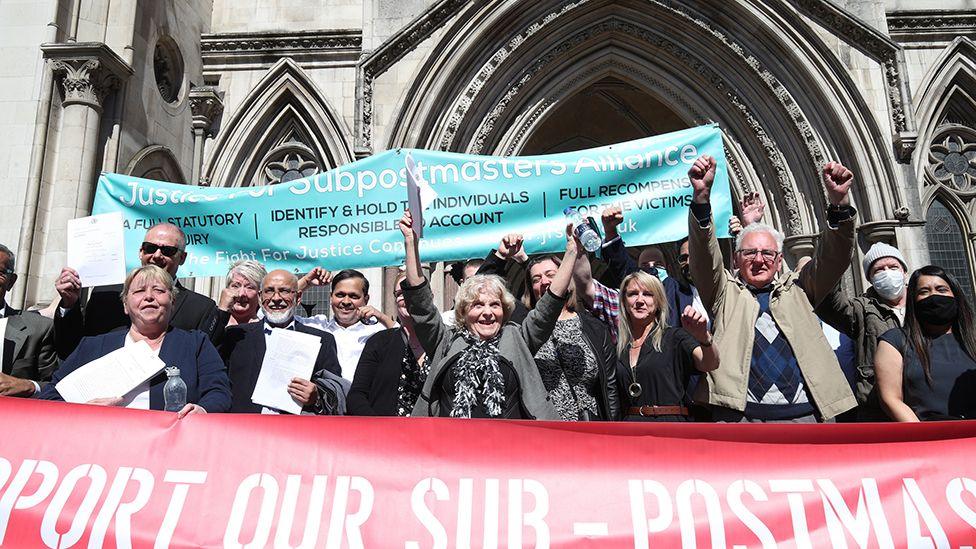
Of the hundreds of former sub-postmasters accused of fraud, only 72 have had their names cleared so far
Another witness, Vinod Sharma, paid £28,000 after a Post Office audit at his newsagents in Balornock, Glasgow.
Mr Sharma, who became a sub-postmaster in 1977, said: "You wake up the middle of the night and think, God, what's happened? What are we going to do - what can we do?
"You soldier on but you do suffer a lot."


Around the year 2000, the Post Office installed a whole load of new software, from tiny branches to big offices right across the UK.
Everyone had their system upgraded from the big book ledgers that were used in many places up until that point.
What sub-postmasters and the Post Office didn't know at the stage when the system went live was that there were bugs, errors and glitches within it.
Gradually, the Post Office realised that money looked like it was going missing from a number of offices.
Rather than believe the sub-postmasters, who were saying the money was still physically there in the post office and just looked like it was missing from the system, the Post Office decided to believe the software and use it as evidence in court.
A number of whistle-blowers have come forward and said: "Yes, at different stages we were told there were bugs and errors in the IT process."
So this public inquiry is trying to find out who was responsible, who knew and why those convictions carried on happening - even when the Post Office, and indeed the government, eventually knew what was going on behind the scenes.

Although 72 former sub-postmasters in the UK have had their names cleared so far, many are yet to receive compensation.
In 2007, Mary Philp was suspended by the Post Office over allegations of missing funds at her sub-post office branch in Auchtermuchty, Fife.
She died in 2018, at the age of 83, before the first court case was won by the sub-postmasters.

Former sub-postmistress Mary Philp died in 2018, at the age of 83, before the first court case was won
Her daughter Myra, who worked with her mother at the Auchtermuchty branch in 2001, said she was a proud and honest woman and the accusations had a devastating impact on her.
Myra said: "It totally destroyed her, to be accused of something she wasn't doing.
"My mum tried everything to point out there was some kind of error. Not to be believed, and to be treated that way, meant she lost her confidence.
"She didn't work again and any time anyone mentioned it to her, she would well up and cry.
"Somebody should be made to stand up and pay for it.
"Not just financially. They need to take responsibility and they need to take it more quickly."
Anxiety and depression
Further inquiry witnesses will include Keith Macaldowie, who ran a post office in Greenock until he was forced to resign in 2011.
An audit had uncovered a £10,000 shortfall which was later found to be caused by problems with the Post Office's Horizon IT system.
Mr Macaldowie told BBC Scotland the "massive injustice" had life-changing effects on his mental health.
He said: "This is actually the first time I've talked about it in the 11 years since it happened - I tried to keep it quiet.
"But I have social anxieties through it, I have depression through it and I'm on medication.
"The justice system is innocent until proven guilty, but according to the Post Office it's guilty until proved innocent.
"And you couldn't prove yourself innocent because you couldn't get your hands on any of the evidence to then go through it."
Related topics
- Published14 February 2022

- Published13 February 2022
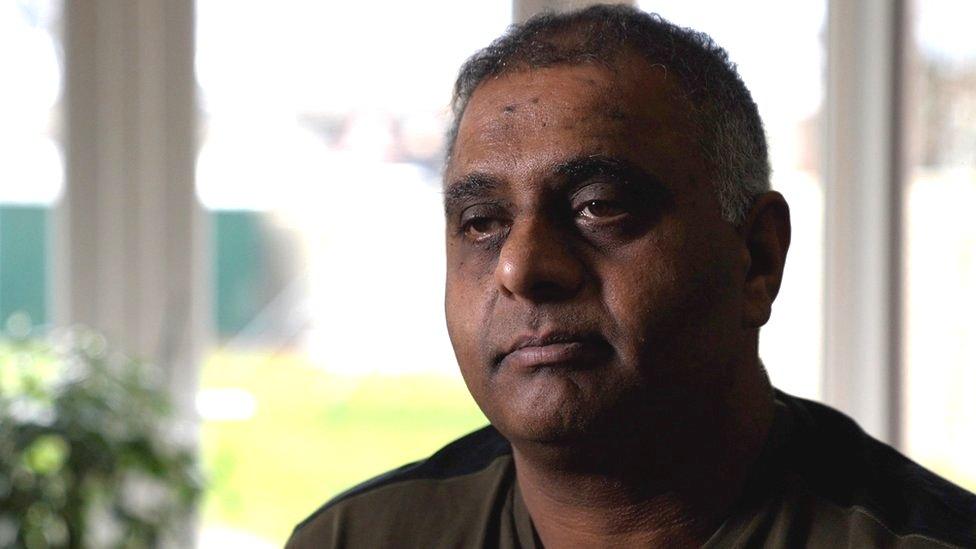
- Published23 April 2021

- Published14 February 2022
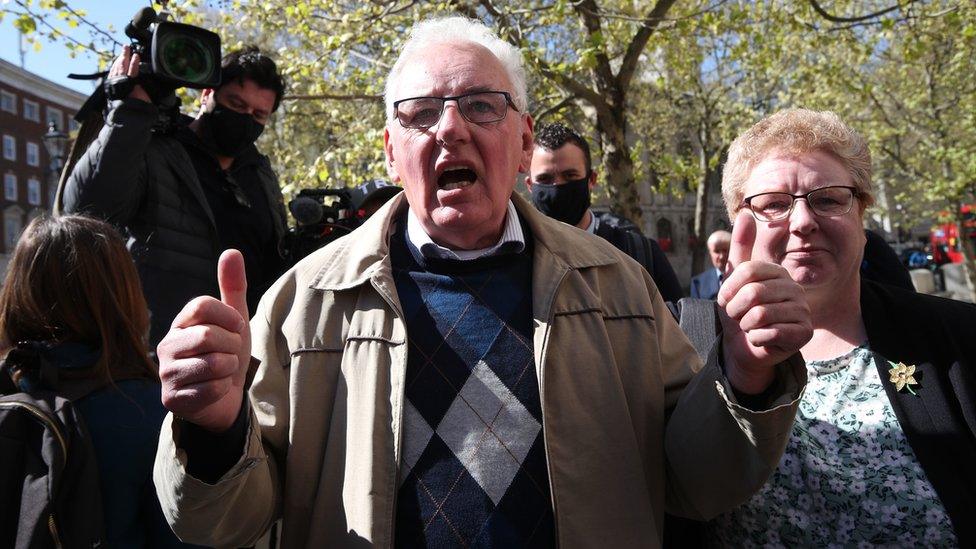
- Published11 January 2022
